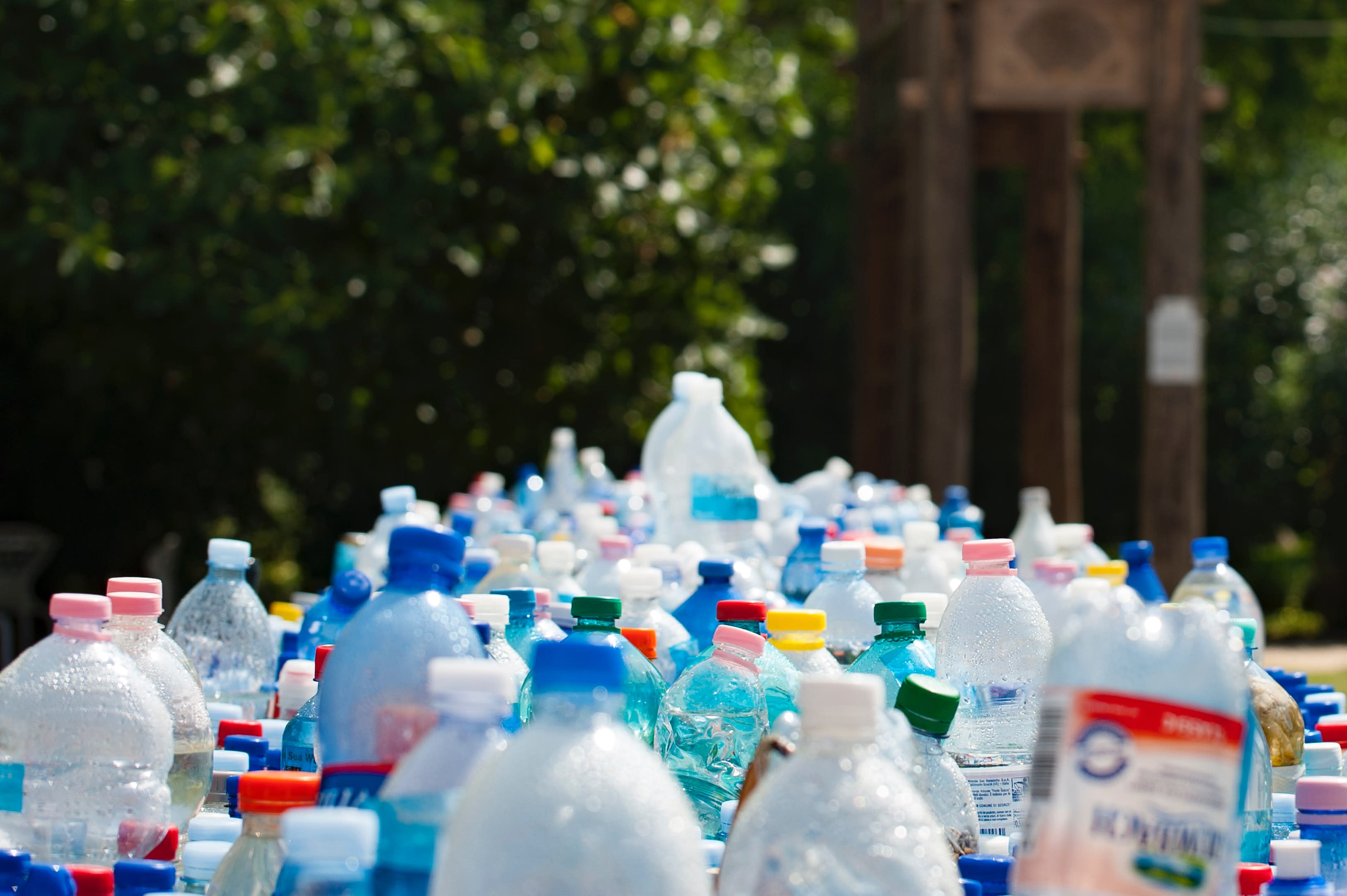The UK uses a staggering five million tonnes of plastic every year, half of which is used for packaging.
The single use plastic ban is a pivotal step in addressing the country's extensive plastic consumption. This regulation challenges businesses to transition towards sustainable alternatives, reducing their reliance on disposable plastics. By complying with these measures, businesses can not only contribute to environmental conservation efforts, but also align themselves with evolving customer demands for sustainable business practices.
What is single use plastic?
Single use plastic refers to plastic items that are used once and then discarded. Examples include plastic packaging, bags, straws, stirrers and cotton buds. These items are designed for convenience, offering quick and easy solutions for everyday tasks. It's this convenience that has driven the widespread adoption of single-use plastics in various sectors, from hospitality to healthcare.
What is the problem with single use plastic?
Single use plastics contribute significantly to greenhouse gas emissions, accounting for about 3.4% of the world's total. This begins with the extraction of fossil fuels to manufacture plastics. Once produced, single use plastics are only used for a brief period before being discarded. Despite their short lifespan, these items can take hundreds of years to decompose, releasing more greenhouse gases as they break down. The use of landfill only adds to the problem, with landfill accounting for 14 mega tonnes of carbon dioxide annually, which is more than half the total emissions from the waste sector.
What is the single use plastic ban in the UK?
The single use plastic ban is a legislative measure aimed at decreasing plastic pollution and increasing environmental sustainability. The Scottish Government introduced the ban in June 2022, becoming the first UK nation to ban single use plastic. The UK Government and Welsh Government followed suit, introducing their own bans in October 2023.
The legislation covers a wide range of plastic products, including those labelled as biodegradable, compostable and recycled.
- Cutlery
- Drink stirrers
- Balloon sticks
- Cotton buds
- Straws
- Plastic plates, trays and bowls
- Polystyrene food and drink containers
What are the exemptions?
There are a few exemptions to the single use plastic ban, primarily for medical supplies and hygiene products. These exemptions ensure that industries can continue to operate safely, while encouraging the development of more sustainable alternatives for the future.
- Cotton buds. You can still supply single use plastic cotton buds for medical, scientific or forensic purposes.
- Straws. You can still supply single use plastic straws in hospitals, care homes, prisons, schools and premises for early years provision. You can also provide them in catering establishments with food and drink for immediate consumption; however, you cannot display them to customers.
- Plastic plates, trays and bowls. You can still supply single use plastic plates, trays and bowls to another business. You can also provide them as packaging; however, they must be filled at the point of sale.
- Polystyrene food and drink containers. You can still supply polystyrene food and drinks containers to transport unprocessed or unprepared food through the supply chain.
What are the penalties?
There are penalties in place for businesses that supply single use plastics under the ban. In Scotland, businesses could receive a maximum penalty of £5,000. In England and Wales, businesses could receive a fine and be ordered to cover the cost of the investigation. However, no maximum penalty has been announced for these areas.
Local authorities are responsible for enforcing these penalties, and regularly carry out inspections to make sure the rules are being followed. The inspectors can:
- Visit your premises
- Make test purchases
- Speak to your employees
- Ask to see your records
What are the sustainable alternatives?
There are a number of alternatives to single use plastic, helping to reduce the plastic waste from your business. With these alternatives, you could align with legislation and avoid costly fines, all while improving the sustainability of your operations.
Bioplastic
Bioplastics are made from renewable biomass sources, such as corn starch, woodchips, sawdust and straw, meaning they release significantly fewer carbon emissions than traditional plastics. Already used in various applications, from packaging to cutlery, bioplastics are quickly becoming a sustainable alternative for businesses.
Cardboard
Cardboard is already widely used in the hospitality industry, from coffee cups to food trays. Recyclable and biodegradable, cardboard offers a practical and sustainable choice for businesses and customers aiming to reduce their environmental footprint.
Paper
Paper products can be easily recycled, reducing waste and conserving resources. By switching from single use carrier bags to durable paper bags, customers can get involved with the waste reduction efforts of your business.
Bamboo
Bamboo is a fast-growing, renewable resource that requires minimal water and no pesticides to thrive. Its strength and flexibility make it a practical alternative for a wide range of products, from cutlery and straws to plates and packaging.
Seaweed
Seaweed is an abundant resource, which can be processed into biodegradable materials that function similarly to plastic. By using seaweed, your business can supply environmentally friendly products, which degrade without polluting our ecosystems.
Other sustainable business practices
Improving the sustainability of your business involves more than just replacing single use plastics. From implementing a recycling program to utilising renewable energy sources, there are a number of steps you can take toward a more sustainable business model. Not only can these steps help to reduce your environmental impact, they can also improve your staff morale, enhance your business reputation and reduce your monthly outgoings.
For more advice, visit our net zero hub.
